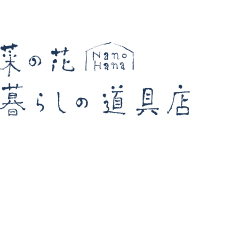Dyslexia Symptoms
Dyslexia is a complex disease and it is rather individualized, thus there is no one typical type of dyslexia. There are no two dyslectics that have the same symptoms. It is essential to mark and realize some aspects, specific forms, classifications, types or symptoms of dyslexia. A part of knowledge comes from knowing and understanding dyslexia symptoms as well as their differences. In general there are two main types of dyslexia- “dysphonetic” type and “dyseidetic” one. Dyslectic children can be distinguished very early. Being in their first, second or third grades they show verbal and written difficulties as well as mix up pronunciations and sounds. They cannot properly speak letters like R`s, L`s, M`s or N`s. In short they are weak in speech. They may incorrectly pronounce words like “red and green” as “wed and gween”. more information
Also they can be poor at listening and identifying the notion or symbol with an item.
It is really logical that children with language and hearing issues can finally have reading troubles as well. Only highly-qualified professional in dyslexia sphere like educational psychologist or neurologist can tell you exactly whether it is dyslexia or not. This conclusion can be performed on the basis of suitable and accurate dyslexia test. The test had to be aimed at revealing the following skills like reading, writing, spelling, language etc. Plus to that is need to investigate intelligence, memory, hearing and vision. So let us identify some dyslectic symptoms and their characteristics.
Dyslectic children have weaker reading, writing and spelling abilities in comparison with their peers, in spite of the fact that they have common intellect and spoken communication. Also under some circumstances they could suffer from verbal language and speaking difficulties. They need help with reading and spelling.
Regardless of having standard, over average or brilliant cleverness they will drop short of academic accomplishment and success in areas like alphabets, vocabulary, pronunciation, notions, handwriting etc. Sometimes they are not able make a difference between letters and symbols as well more details as match them. They could be having some peculiarities of their behaviour. For example, they can be dumb, lazy, not careful, non-active, moving back, simply naive etc. Dyslectic children are easily to get angry, upset, hurt, frustrated, exciting and repellent in the face of household duties or school tasks.
Dyslectics usually have a lack of self-worth and have an inferiority complex. This provokes them not to achieve good results in studies as well as communicate with their peers or in society. They are glad to be involved in various actions and activities like art, music, sports, drama, equipment, trade, business, society work etc. It gives them a chance to balance their poor oral or writing abilities. It is rather difficult to raise their negative image in the eyes of their classmates and teachers. They can be inattentive, lacking of concentration in schools, forgetful, illogical and finally blitz brigade hack tool lost with school programme of study.
Their behaviour may be treated as anti social. Any comprehension test at school may lead to some unpleasant situations. These issues might occur in most of the cases because of visual worsening. Sometimes they fail to pursue a piece of advice or instructions.


コメントを残す